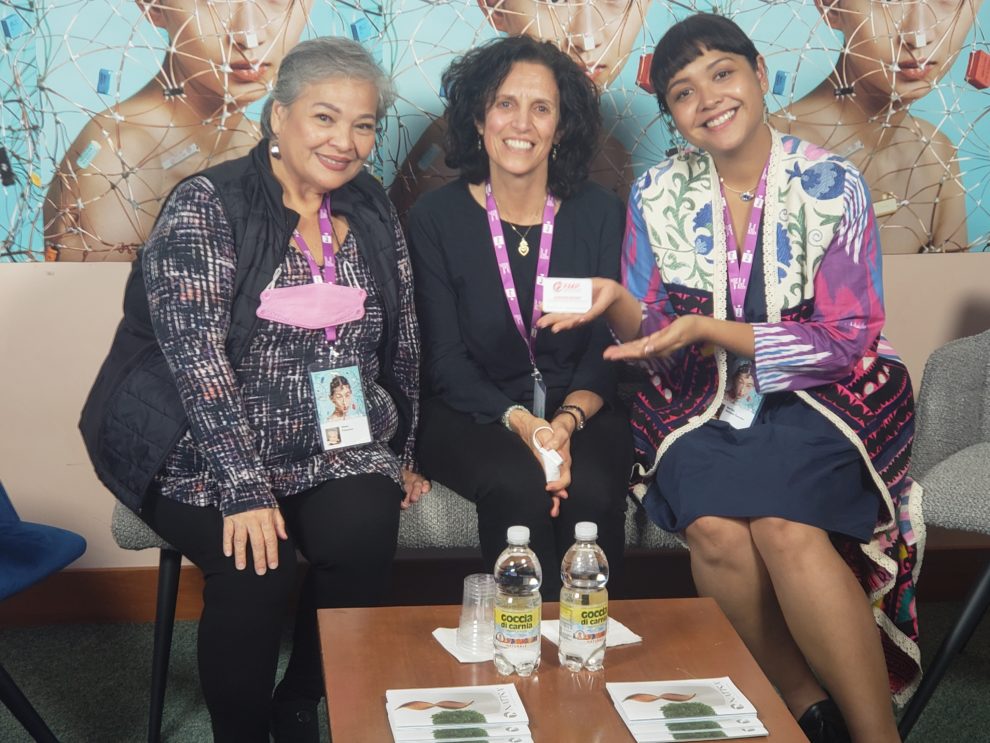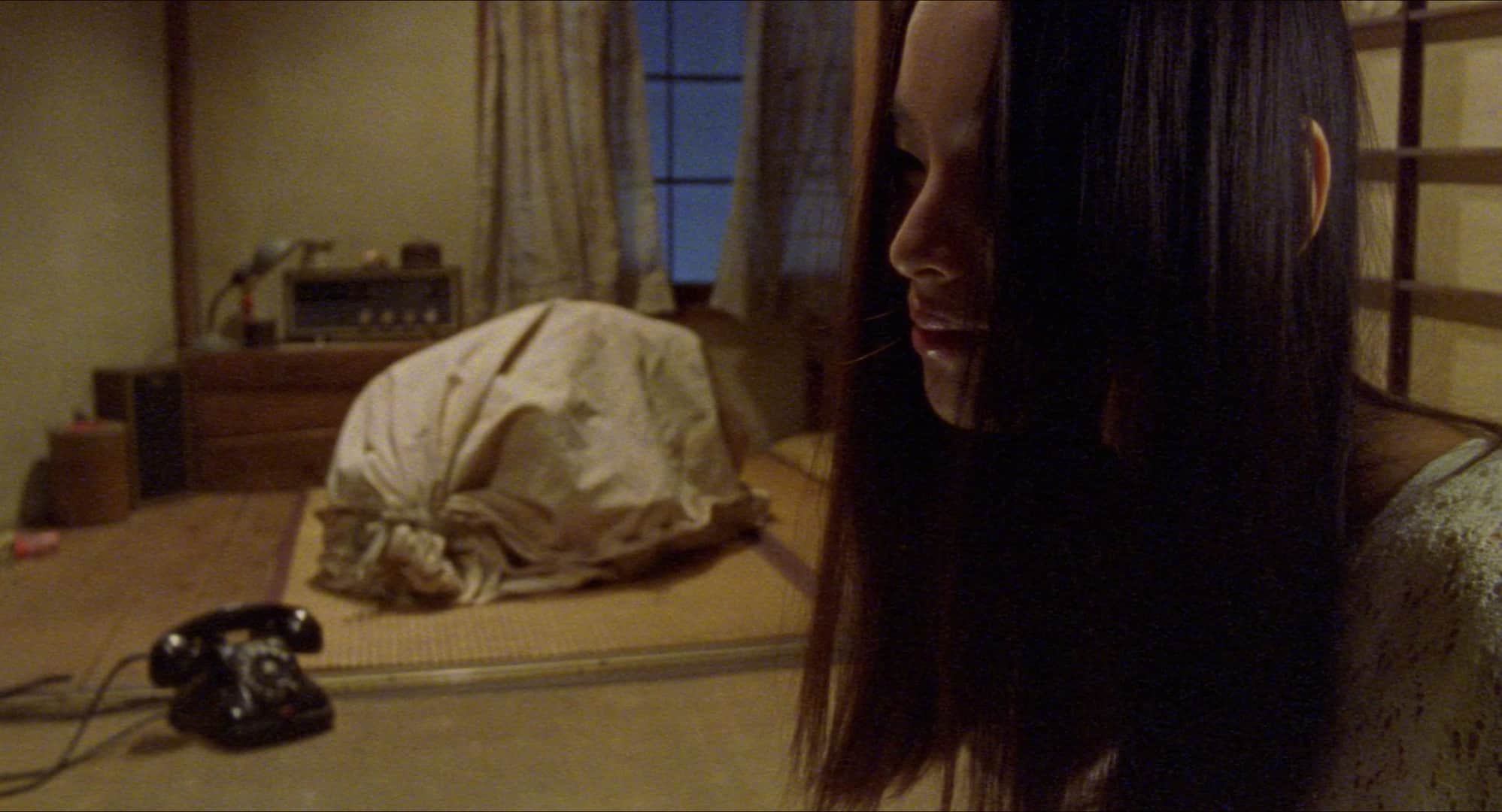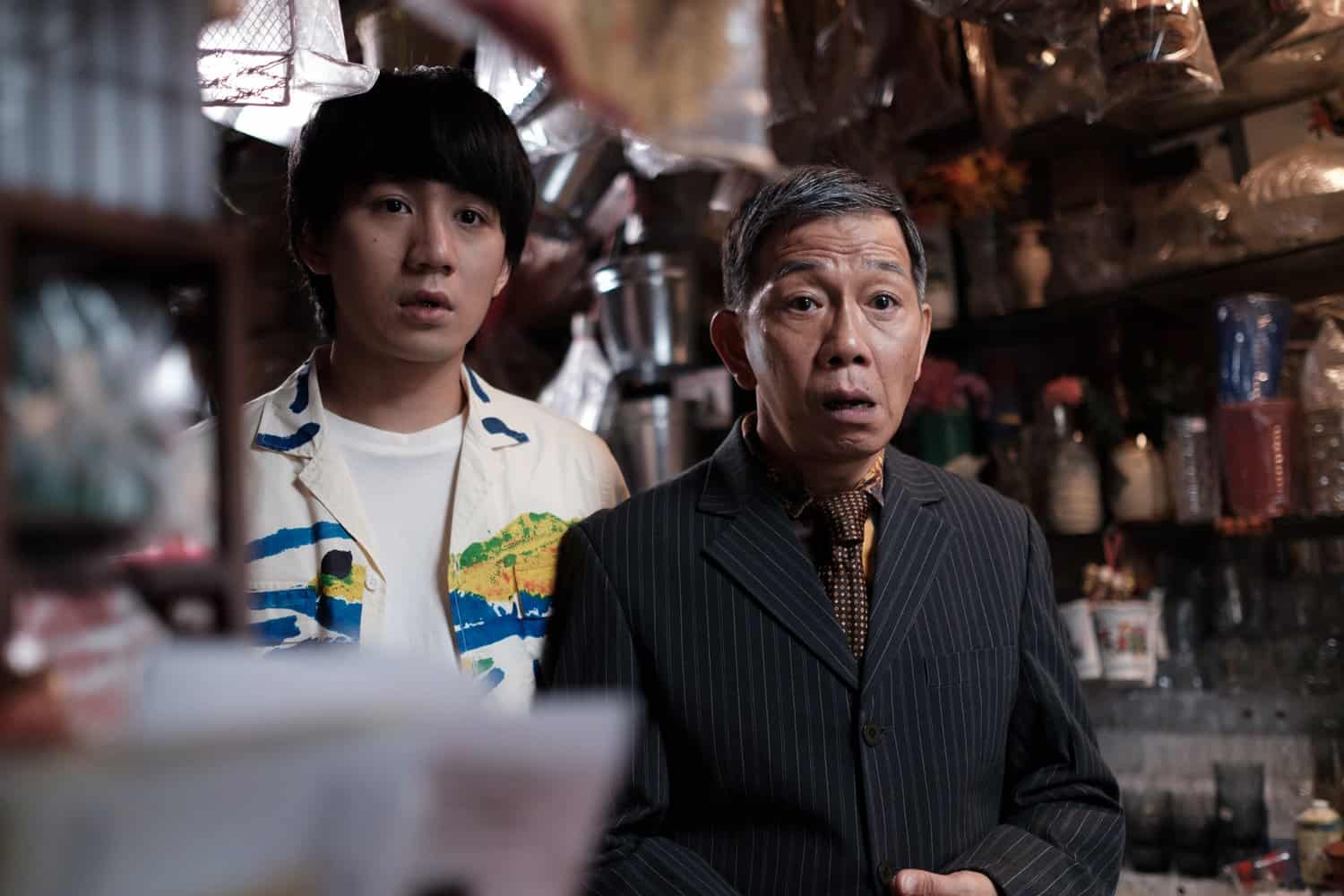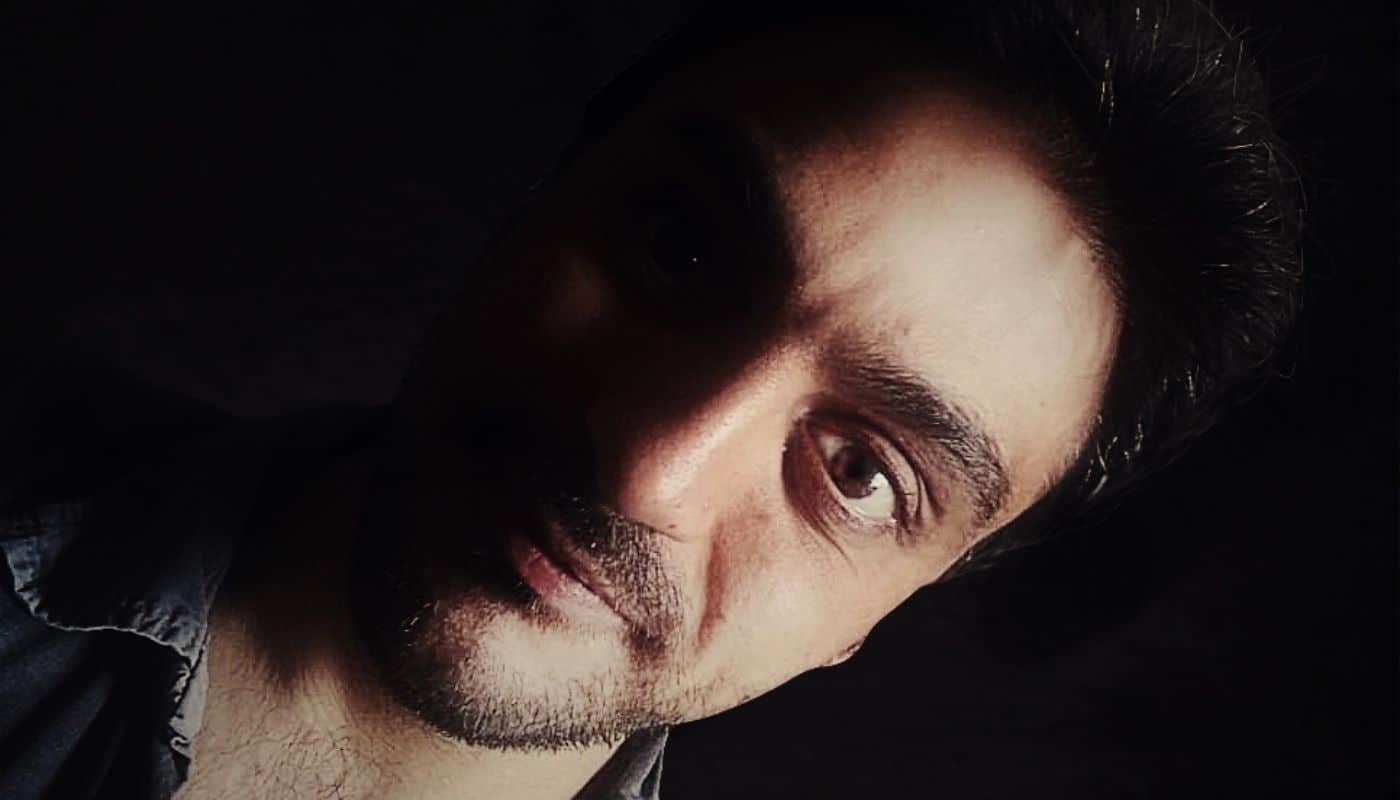Director Martika Ramirez Escobar has been working in the industry for a while. After a University degree “cum laude”, her graduation film “Pusong Bato” participated to the 19th edition of Busan International Film Festival. She has been working as a DOP for “Hello, Stranger: The Movie” and for Zack Tabuldo's music videos “Heart Can't Lose” and “The Juans”. Her first feature film “Leonor Will Never Die” took 8 years to be completed and after having its world premiere at Sundance Film Festival in 2022, it won the World Cinema Dramatic Special Jury Award for Innovative Spirit.
Actress Sheila Francisco comes from a theatre background. She played a lot of memorable roles in her career as a theatre actress, most recently the role of Bloody Mary, in the Rodgers and Hammerstein musical “South Pacific” in the 2000s at the National Theatre in London, but she was also a TV commercial producer long before her acting career. Francisco plays the titular role in Escobar's film “Leonor Will Never Die”.
We talk with them about the long journey to the completion of the film, Filipino action movies of the 70's and 80's, screening at Sundance, and other topics
“Leonor Will Never Die” is screening at Udine Far East Film Festival
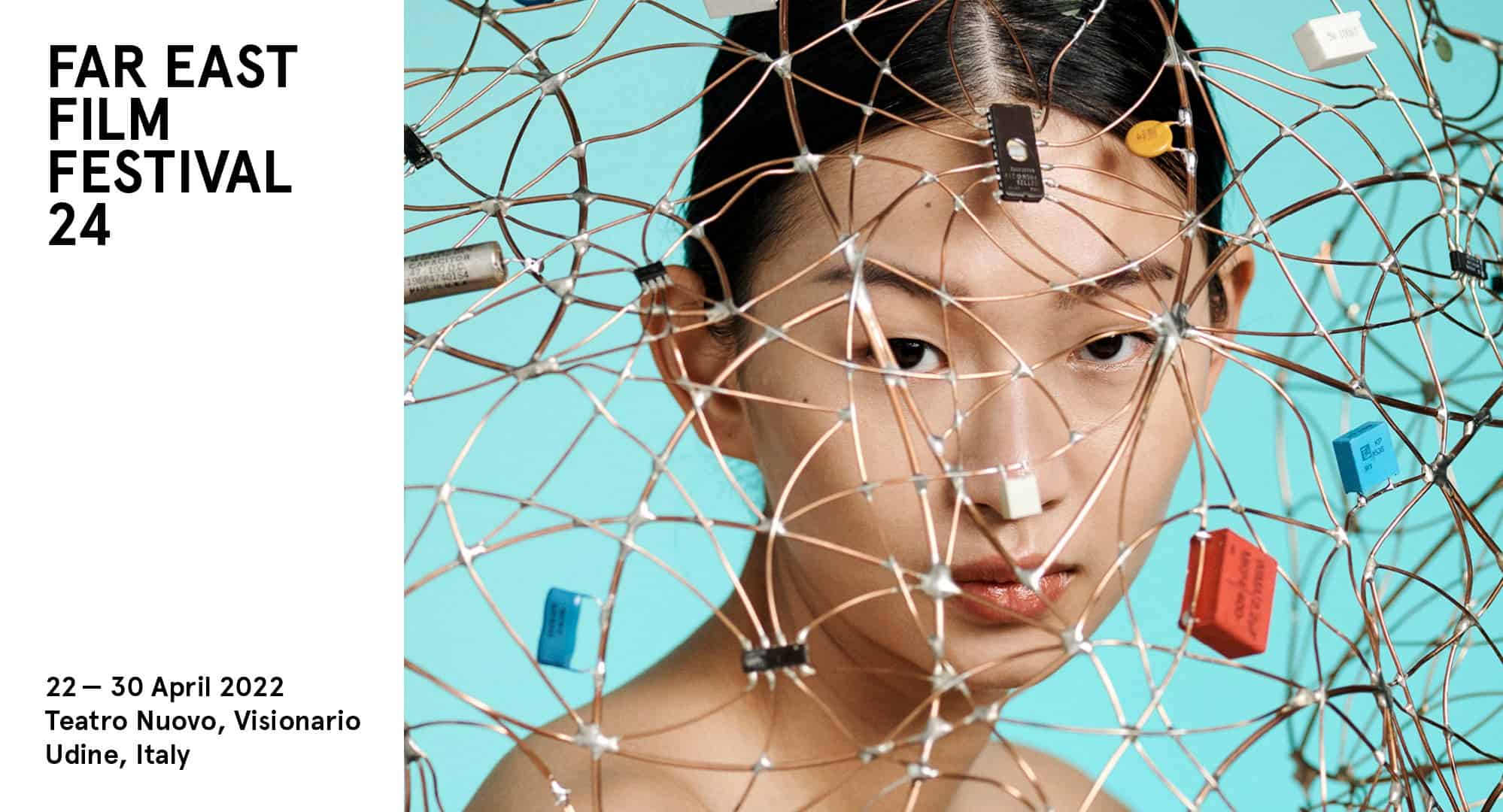
Your film is so original and unconventional! I know it was a long journey, could you talk us through the process?
Martika Ramirez Escobar: It is difficult to chronicle an 8-year journey in few minutes but let's start with describing the film. It was a perpetually changing film from the writing, from conceptualizing it, and the shooting kept on changing, we even had different versions of the film, until the last 2 years we were trying to find out what the missing ending was, so I see it as the process of finding yourself in your own work. When I started, I was 21 and it was my first feature and I wanted to try so many things. It was full of gimmicks, full of, you know, all the dreams of a first time filmmaker. But then, as I grew older, I realized: “Oh, this is not the type of cinema I would like to make!”. So I kept on changing and changing and it was difficult for me to stay aligned with the project as I was also working on different films, I was able to talk with people, so, I guess this film is also reflective of how I grew up as a changing person, as a changing filmmaker, who is searching for the film she want to make, which appears in the film. So, 8 years of confusion! Also of crisis, but I was blessed to have such a wonderful team that was willing to jump into this strange idea, this small uncertain process of making it. We had a script, but it really was trial and error!
Sheila Francisco: But it is like life! It's really a reflection of life. All us, we weren't that sure where we wanted to go to, but we knew we wanted to achieve something and I think this is a reflection of what you went through, because at 21 you thought; “This is the film I want to do” but as time went by, it changed, there are a lot of outside forces and limitations that could reduce to zero the material done.
Martika: It is like that but it is also about finding the right people you want to be with, like with Sheila, when I saw her it was her, and when she read, it was REALLY her! So, it was easy!
Sheila: It's a good team, it's a good thing that she was so certain for me, because I wasn't sure of me, to do the role! My joining in was more due to curiosity because I saw her as a young lady, – so very sweet – but she wanted to do an action film and that it's already something very strange for me. But she knew exactly what she wanted and I said: “I am going to write with her, I am going to jump in and help her to fulfil that vision”. So, right time, right opportunity, right people!
Sheila: It's not like I have known her all her life, I only met her in 2018 before filming, so things just happen sometime.
Like magic?
Sheila: Yeah! Everything moves towards the right place.

Can you talk about the Filipino action movies of the 70's and 80's? Did you grow up watching them of was it a later passion?
Martika: These action films are really important in the Philippines. In the 70's and 80's there were 300 action films made per year, it was part of my culture, of my life. We often see these action stars as heroes who can save us, that is why these action stars would run for government in the position to lead us, and we'd then see the characters transit outside the screen and that affects our vision as a whole. I grew up having a president who is a former action star! But my personal experience of watching these films was usually at home or wherever, at the restaurant, at the hospital, they would play action film replays, it was such a big thing, and you would gather and cheer the hero and it is like a shared experience of joy, or anger if the villain is there! It is a very strong memory I have, a memory that I tried to explore in this film and also the feeling that I wanted this film to have. When you watch “Eleonor”, I wanted you to have the same feelings that I was having watching those action films, the feeling of wanting to cheer for the hero.
I think the “elephant in the room” of your film is the deep trauma of the death of Leonor's son. How strong in your opinion is the link between trauma / pain and the creative process?
Martika: Definitely, I think that pain and trauma are part of the creative process, in this film Leonor is trying to revise and re-write, trying to take things back, dealing with the past and trying to overcome the reality of her son passing away. The whole storyline between Leonor and Ronwaldo is based on my grandmother who also lost her son when he was around that age. I didn't think much, I just wanted to use my grandma's story, she would tell me that sometimes she felt his presence, that he was there. She didn't talk to him like Leonor but she knew he was there.
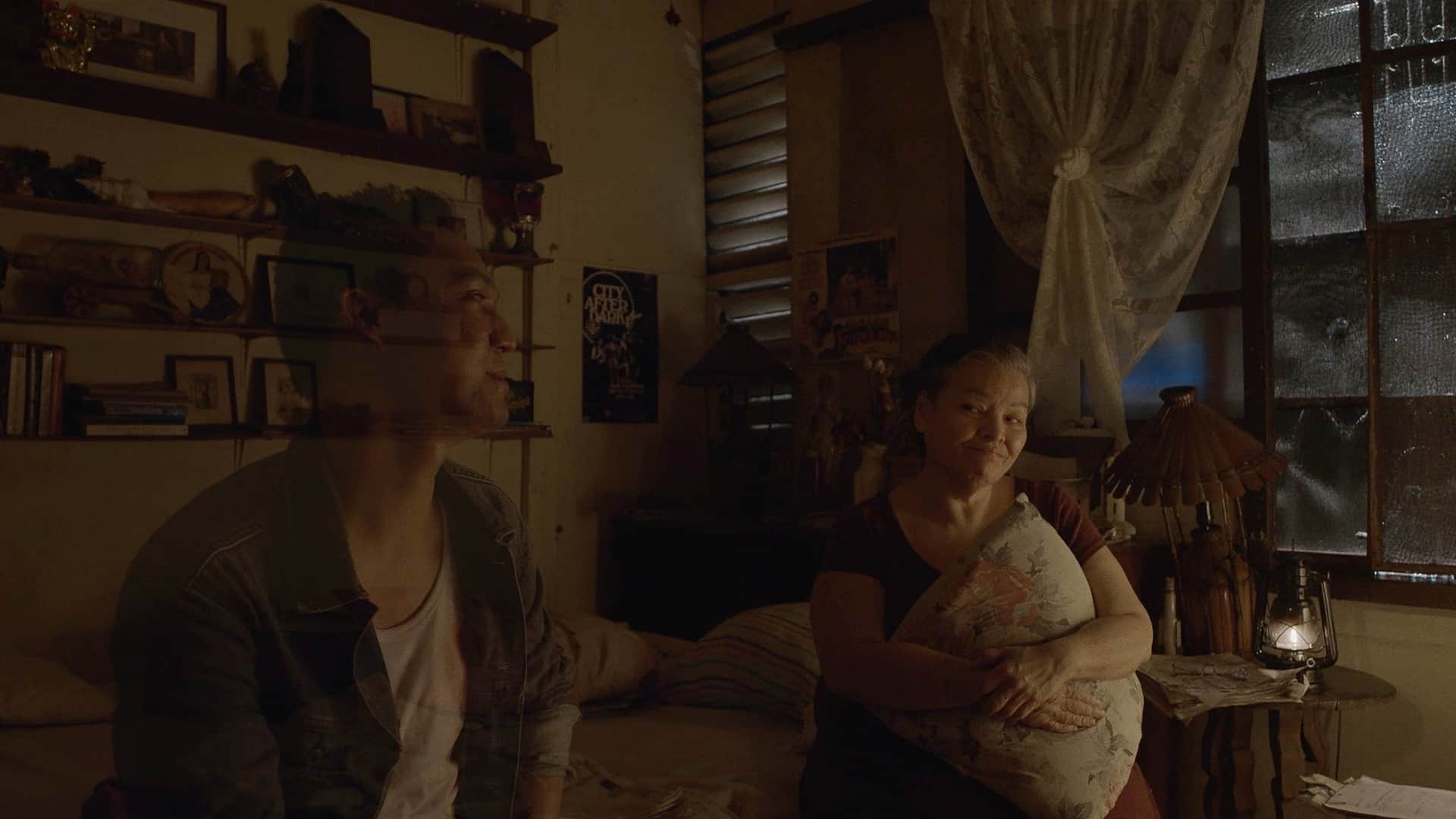
How did you feel when the film was selected at Sundance?
Sheila: We did the film in 2019 and the plan was that in 2020 we would release it in theatres and then the pandemic happened and everything was put on hold, but this also gave Marty (Martika) an opportunity to work on postproduction so, somehow, that did it well, and then, without telling anybody … come on, tell the story!
Martika: Because I didn't have any money, I saw there was a pending Sundance deadline for early bird (discounted) so I immediately submitted it to be in time for the early bird, and then I forgot everything about it until December when an email arrived and it was saying: “Your film has been selected at Sundance”, and I thought it was one of those scam email so I took a screenshot and sent it to my producer asking to check if it was real, and they told me: “Oh my God, you are going to Sundance!” And I couldn't believe it, even when I saw the screening (online) I didn't believe it, because it is beyond my dreams! Then slowly felt more and more real, and now we are here!
Sheila: It was really funny because she called me and she told me: “Hi Sheila, guess what? We are going to have a premiere, finally” and I thought maybe it was a private screening with friends and family. And then she said to me: “But we need to take a trip”, “What do you mean a trip? To where?” and she said: “Sundance!”. “What?? Say again??” It was mayhem. We were ready to leave for Sundance and then Omicron happened and so 2 weeks before we were told the festival would be online. But the experience was really wonderful, we were all on zoom all the time, we watched so many films!
Did this experience propel ahead your future plans? Do you already have something in the pipeline?
Martika: Well, I am trying to write my next feature but, you know, it could take 5 years (laugh)
Let's hope it doesn't!!
Martika: But Sundance really established the start of our dream, we wouldn't have all this if it wasn't for Sundance.

And can you tell us something about the film industry in the Philippines especially about the situation for independent filmmakers?
Martika: Well, people are shooting many films already but it is mostly studios shooting films for their online streaming sites, that is why lots of young filmmakers can get to make their films. However, for independent filmmakers not as much, because it is expensive and we need to pay for the protocols and lots more stuff.
Can you have any help from the government?
Martika: We have initiatives that helped us to come here, and initiatives for filmmakers, really helpful, you can send the script and they would give an amount, but it is a never-ending job, asking people for money to make a film. But we are getting there!
Thank you and good luck!


